Google dominates this week’s search news, but that is nothing new. They are rolling out a new look for hotel searches (also nothing new) and adding more details for event listings including the ability to go directly to booking pages. Elsewhere, Bing announces some details about how they create their search engine result pages. Get all these details and more on The Week in Search.
Google Image Search Tests Bridging Mobile Design to Desktop Search Results
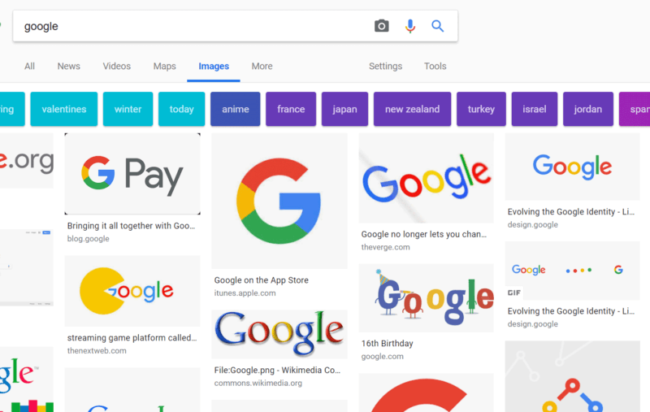
Google appears to be aligning the desktop and mobile versions of image search continuing their push to a more unified user experience across platforms.
Google to Stop Supporting Public URL Submissions to its Search Index
While web pages can no longer be added for crawling via the public addurl page, webmasters can still use Google’s Search Engine Console to let users know that they have published new content.
Google Updates its Search Quality Rating Guidelines
Google has updated their Quality Raters Guidelines, guidelines that their 10,000 search raters use to rate content. In particular, raters are encouraged to look at the quality of the person writing articles, to rate articles low where titles are sensationalized and penalize keyword stuffing even more. While these individual ratings do not directly impact the rankings, Google users the feedback to teach their Google algorithm to do a better job.
Google: Word Count Isn’t Indicative Of Quality

As long as you meet user intent, it does not matter how many words are on a web page. Google says it does not penalize web pages with few words or short content on them as long as they meet user content. Hyperlinks can prove valuable for those who want to share additional details.
This article provides interesting insights into how Bing works. For example, they use natural language processing including semantics, morphology to determine the search user’s intent. They also use click behavior to determine what users really want to find. Bing considers upvotes and downvotes as signals to a page’s accuracy. They also consider the popularity of answers when ranking sites.
Google Releases Speakable Markup
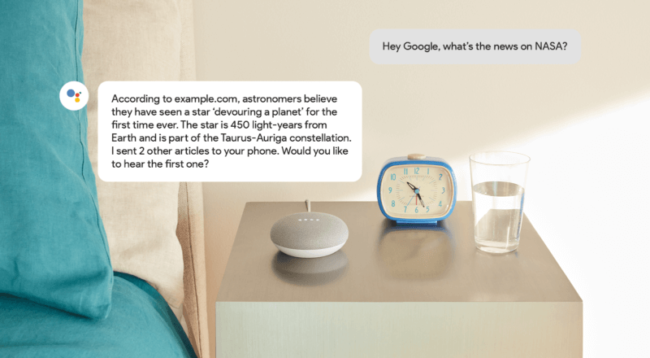
Are you a news publisher or have news on your site? Then pay attention. Google has announced some new markup aimed aimed at publishers looking to get their content into Google Assistant. The markup names ‘speakable’ allows publishers to mark up pages like this one for ieasier inclusion into the voice search world.
Google Tests New Hotel Search Results Design
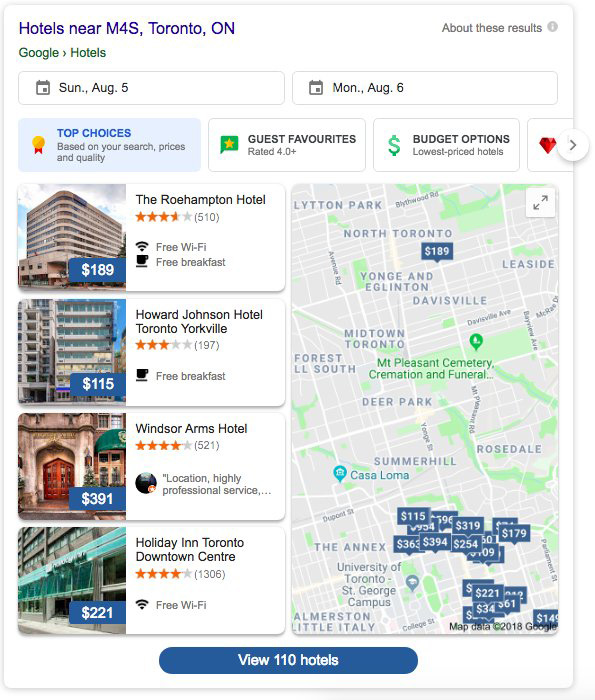
For some hotel search inquiries, Google has removed its card-based-list view replacing it with a new compact design.
Google Event Search Feature Adds More Details and Links to Book Tickets
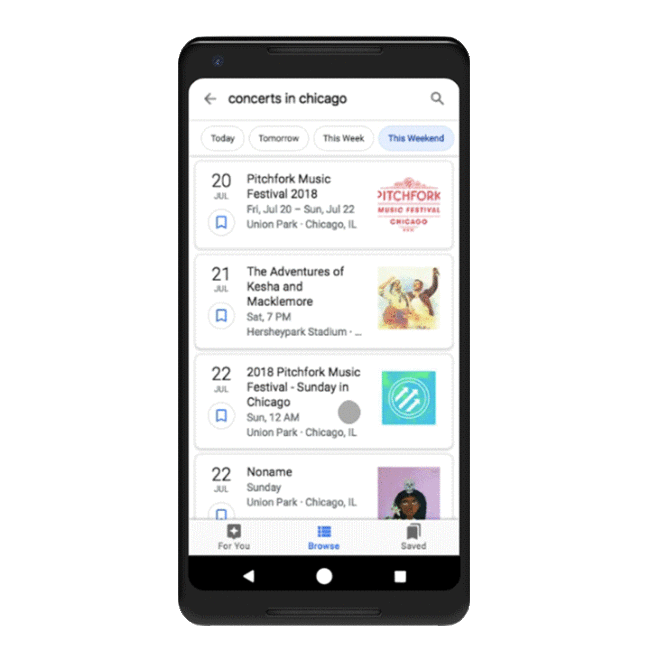
Google will now be providing more information about events along with links to buy tickets. The new features are set to roll out next week.
Google Ads Arrives. So long, AdWords
Following up on last month’s announcement, users were greeted with the new Google Ads logo when they opened their accounts on July 25, 2018.
Google Ads Intros New URL Parameter Options Ahead of Parallel Tracking Deadline
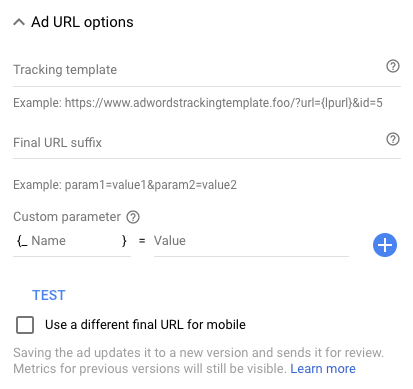
Google Ads now give users a parallel tracking option ahead of the October 31, 2018, deadline to make changes. Users can now choose up to eight options where they were previously limited to three and opt to load a parallel landing page while the tracking URL, Google Ads click tracker and any redirects load separately.
Google Can Combine URLs Before Crawling
According to John Mueller, Google has the ability to combine content before they even crawl a site in order to avoid showing a duplicate-laden search-engine-result page. Their ability to do this may be based on the use of canonicals, redirects and basic CMS structures.
There is no news we were following in this category this week. If you think we’ve missed anything please feel free to add it in the comments below.
Google Chrome Now Labels HTTP URLs As Not Secure
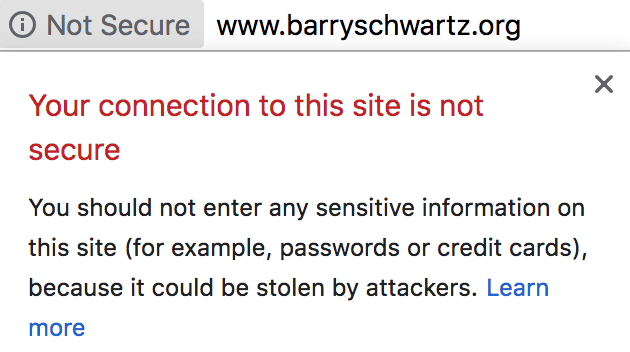
Google Chrome version 68.0 has started marking all HTTP sites as not secure suggesting that users do not enter any passwords or sensitive information.
Yext Integrates Local Business Listings Directly Into Amazon Alexa
Ahead of the introduction of several new Google Assistant-powered devices to the market by the end of the year, Amazon’s Alexa will start getting local business listings directly from Yext. Until this time, Amazon has counted on Yelp. This change could be instrumental in heralding in an era where voice search provides a deeper and more meaningful experience.
Lenovo Debuts Smart Displays Featuring Google Assistant
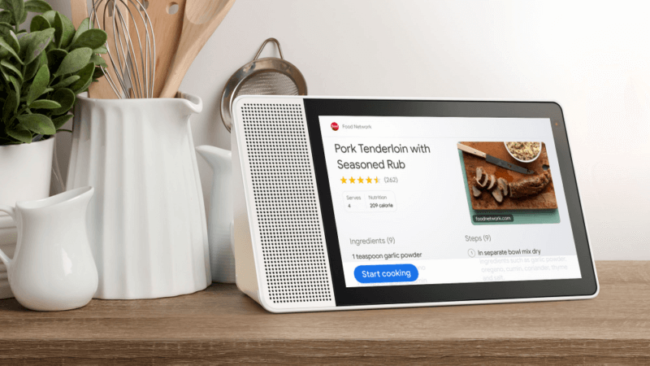
Eight-inch and 10-inch Lenovo devices were introduced to buyers on July 26, 2018, with a number of Google features preloaded on them. Users can interact with these new devices using the touchscreen or their voices. Other versions may be released in the near future.
How User Behavior In Search Works: Everything You Need to Know
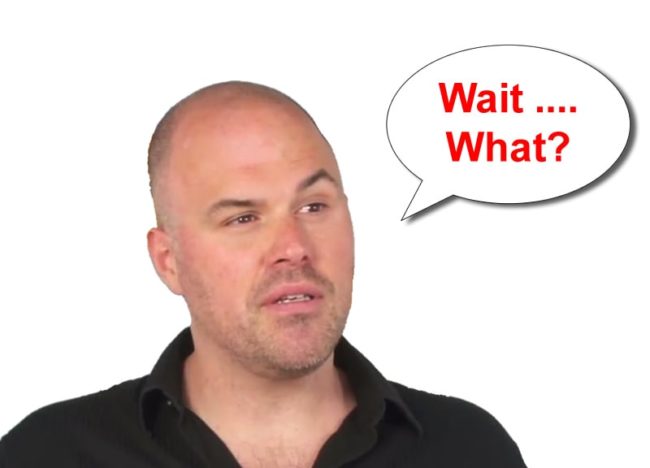
I released the last part of my series on how how search engines work. In this article we discuss user behavior. Google has repeatedly said that aren’t using Google Analytics or social media signals however that doesn’t mean they don’t use user click behavior, reviews of even particular aspects of analytics to decide how to rank websites.
